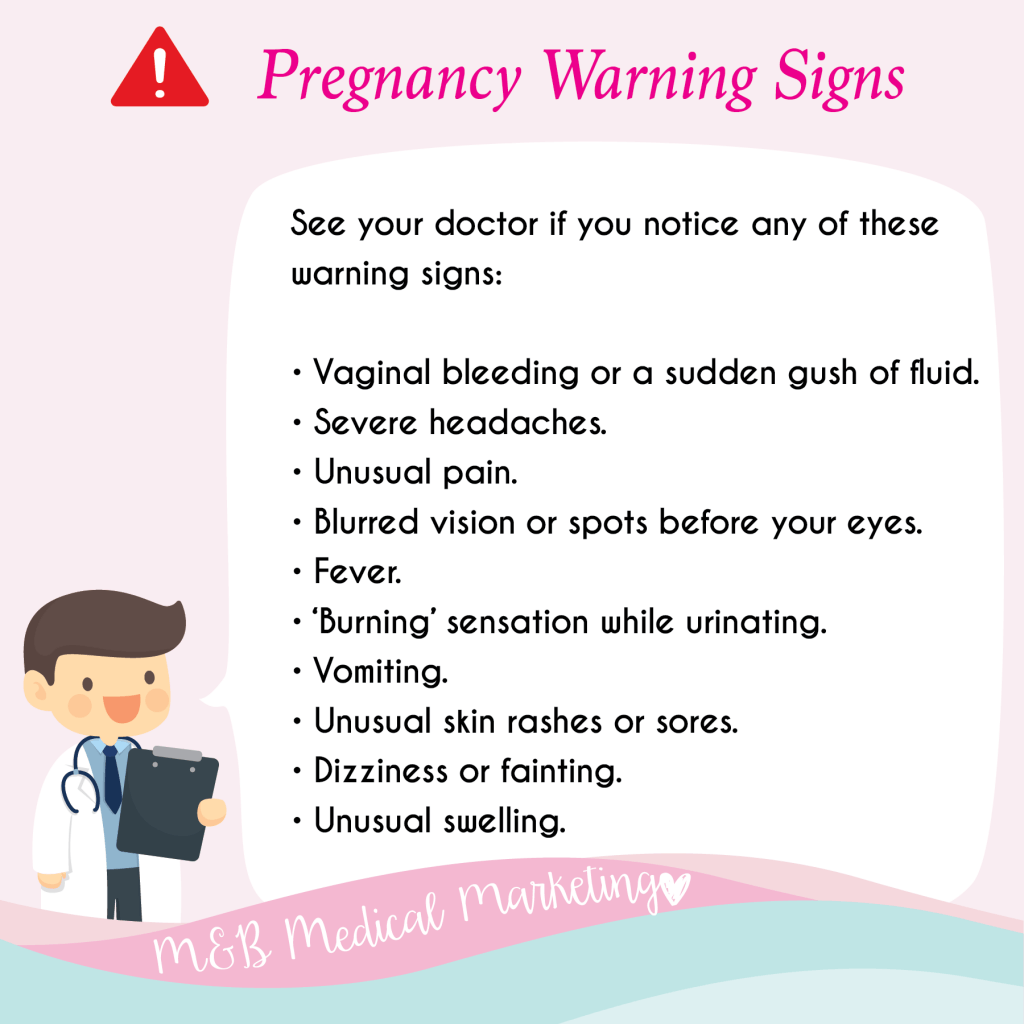
Warning Signs During Pregnancy: A Comprehensive Guide
Pregnancy is a time of immense joy and anticipation, but it is also crucial to be aware of potential warning signs that may indicate a problem. Early detection and prompt medical attention can significantly improve the health outcomes for both the mother and the baby. This comprehensive guide will provide an in-depth overview of the various warning signs during pregnancy, empowering you to make informed decisions and seek timely medical care when necessary.
Bleeding and Spotting
Vaginal bleeding or spotting during pregnancy can be a cause for concern, especially in the first trimester. While light spotting may be common in early pregnancy, any significant bleeding or cramping should be evaluated by a healthcare provider. Heavy bleeding, accompanied by severe pain or fever, could indicate a miscarriage, ectopic pregnancy, or placental abruption.
Severe Abdominal Pain
Sudden or persistent abdominal pain during pregnancy can be a sign of various complications, including preterm labor, placental abruption, or an ectopic pregnancy. If the pain is accompanied by vaginal bleeding, nausea, vomiting, or fever, it is essential to seek immediate medical attention.
Persistent Nausea and Vomiting
While morning sickness is a common symptom in early pregnancy, severe and persistent nausea and vomiting, known as hyperemesis gravidarum, can lead to dehydration and electrolyte imbalances. If vomiting is uncontrollable, interferes with daily activities, or is accompanied by weight loss, it is crucial to seek medical evaluation.
Vaginal Discharge
Changes in vaginal discharge are common during pregnancy. However, foul-smelling, thick, or discolored discharge may indicate an infection, such as a yeast infection, bacterial vaginosis, or sexually transmitted disease. If you experience any unusual changes in vaginal discharge, consult your healthcare provider.
Swelling
Mild swelling in the hands, feet, and ankles is normal in late pregnancy. However, sudden or severe swelling, especially in the face or hands, can be a sign of preeclampsia, a serious condition characterized by high blood pressure and protein in the urine. If you experience rapid or excessive swelling, seek medical attention immediately.
Headaches
Occasional headaches during pregnancy are common, but severe or persistent headaches can be a symptom of preeclampsia or other underlying medical conditions. Headaches that are accompanied by visual disturbances, nausea, or vomiting require prompt medical evaluation.
Vision Changes
Blurred vision, double vision, or other vision changes during pregnancy can be a sign of preeclampsia or gestational diabetes. If you experience any sudden or significant changes in your vision, it is essential to seek medical attention.
Urinary Tract Infections (UTIs)
UTIs are common during pregnancy due to hormonal changes and increased pressure on the bladder. Symptoms include frequent urination, burning or pain during urination, and cloudy or foul-smelling urine. If left untreated, UTIs can lead to kidney infections, which can be dangerous for both the mother and the baby.
Preterm Labor
Preterm labor is defined as labor that begins before 37 weeks of pregnancy. Signs of preterm labor include regular or frequent contractions, lower back pain, pelvic pressure, and vaginal bleeding or spotting. If you suspect you are experiencing preterm labor, seek medical attention immediately.
Other Warning Signs
In addition to the signs mentioned above, other warning signs during pregnancy that require prompt medical attention include:
- Fever: A fever of 100.4 degrees Fahrenheit or higher can indicate an infection.
- Chills: Chills, accompanied by a fever, can be a sign of sepsis, a life-threatening infection.
- Difficulty breathing: Shortness of breath or difficulty breathing can be a symptom of preeclampsia or other respiratory complications.
- Painful urination: Severe pain or burning during urination can indicate a kidney infection.
- Seizures: Seizures during pregnancy can be a sign of preeclampsia or other neurological conditions.
When to Seek Medical Attention
If you experience any of the warning signs described above, it is crucial to seek medical attention promptly. Early detection and treatment can significantly improve the health outcomes for both the mother and the baby. Do not hesitate to contact your healthcare provider if you have any concerns or if you are unsure whether a symptom is normal.
Conclusion
Understanding the warning signs during pregnancy is essential for ensuring the health and well-being of both the mother and the baby. By being aware of these signs and seeking medical attention when necessary, you can help prevent complications and ensure a safe and healthy pregnancy. Remember, your healthcare provider is your partner in pregnancy, and they are always available to answer your questions and provide guidance.